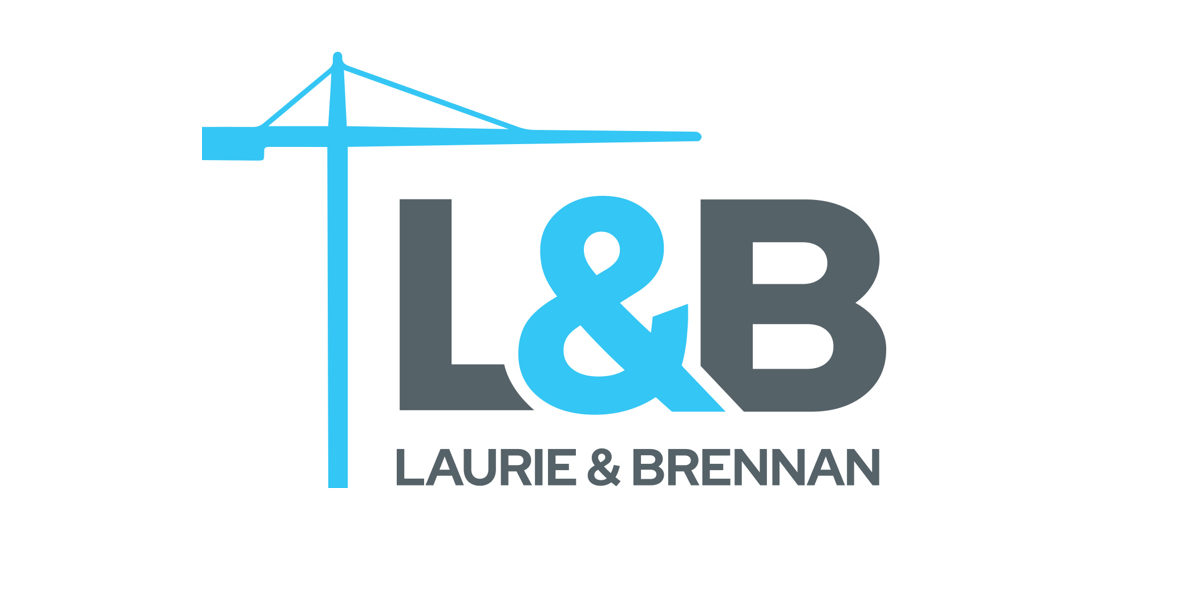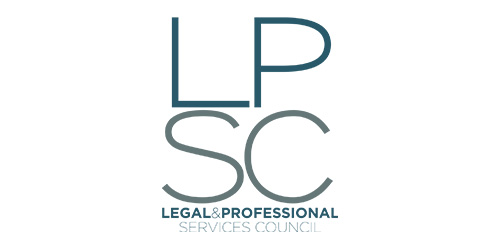Brand Building in 15 Minutes Recap – How to Handle Firm Attorney Deaths: Communication Best Practices
Builden’s Director of Client Projects Sara Goddard discussed how law firms can best communicate with internal and external audiences upon learning of an attorney passing in March’s installment of Brand Building in 15 Minutes.
Watch the full webinar here.
The Brand Building in 15 Minutes webinar series gives attorneys, marketers and legal administrators practical tips for efficiently executing marketing and business development efforts in a bite-sized timeframe. The program topics focus on process-driven best practices that raise law firm profiles.
Builden is changing the way law firms think about marketing by turning random acts of marketing into strategies that drive business development. Our seasoned team of legal marketers helps firms of all sizes better engage with clients, prospects and talent.
Enjoy insights and best practices for law firm marketing? Sign up for our newsletter here.
Video Transcription
Jocelyn Brumbaugh (00:00):
I’m Jocelyn Brumbaugh, the founder of Builden Partners, and we are here today with our March installment of Brand Building in 15 minutes, where we take law firm’s biggest marketing and operational challenges and tell you how you can make meaningful change on them in just 15 minutes. Today’s topic is a lot less fun than our normal brand building topics, but it’s something we inevitably have to face. How to communicate the news when an attorney passes away. It’s a hard emotional topic, and when you’re close to the person, it’s challenging to think objectively about the audiences and the places the firms need to communicate. Think about the tone and the best words to convey that loss. So, we’re going to get into that in just a minute. But first, you know us, we are Builden Partners. We do marketing strategy for law firms and only law firms, and our team has years of experience working for law firms, so we get it.
(00:54)
We know how to move the needle on marketing and business development and communications initiatives within the partnership model because we work with law firms from the AM law 10 to premier boutiques. And if you’re in Chicago, like my colleague Sara Goddard and I are, you know that it’s voting season. It’s always voting season in Chicago, and we could use your help. We would appreciate your vote. Builden is up for the National Law Journal’s “Best of the Midwest” in two categories. We’re going to drop the link into the chat, so if you wouldn’t mind voting for us, we would appreciate your support. But let’s turn now to what all of you are here for today, to hear from Sara Goddard about how to best communicate when an attorney passes away.
Sara Goddard (01:45):
Thanks Jocelyn. So, when a firm loses a lawyer, or any valued team member, there are many different elements that need to be considered and handled, one of those being how best to communicate the passing. In the next few minutes, I’m going to show you how your firm can best communicate with internal and external audiences upon learning of an attorney’s passing. As Benjamin Franklin said, nothing is certain except death and taxes, and in this very difficult season, and as a very strict project planner, my advice is always going to be that the best way to manage both is to be prepared.
(02:19)
So what should your plan consider? From employee handbooks to partnership agreements, there are plenty of resources to help navigate the straightforward do’s and don’ts of your jobs and law firm management. However, there’s sometimes unexpected instances that aren’t really covered, like how best to handle the death of an attorney. Who should you contact first? What’s the most suitable way to inform your staff? And do you post about it on the website? While the passing of an attorney may be unexpected, you do not have to be unprepared and handling sensitive issues is easier with a plan in place. If you develop a general protocol for these situations, the process will be smoother for you, your firm, and especially the family, and you’ll be able to balance business needs with empathy and emotional intelligence. Making sure you’re prepared on all fronts for the death of a firm attorney is something no one looks forward to doing.
(03:11)
But failing to take a few necessary steps beforehand is a recipe for potential confusion and anxiety among your attorneys, your clients, and the family. Although the notion of planning for someone’s eventual death is never fun, those who put a little bit of time into it are going to be more likely to emerge from a terrible situation in a way that shows compassion and dedication to the memory of their lost colleague. Not unlike succession planning, which is another important topic to discuss within your firm, developing a well thought out and discussed plan that has clear roles, and a to-do list will save valuable time and help preserve existing relationships both inside and outside of your firm. So, what should your plan include? Death is never an easy thing to announce, but when it happens to a business partner, it can be especially challenging to communicate. In addition, each firm is unique. So, while I’m going to give you some key points, it’s really important to consider your individual firm’s culture when making your plan.
(04:08)
The first point of contact and the first step is always going to be working with the family of the deceased. They may wish for privacy and it’s important to know that before you communicate about the death to your staff and clients. The family may also have specific wishes on where flowers or notes or charitable donations be sent, and they may not wish to have meals delivered to their home. Remember, they are grieving, so be mindful of putting too much pressure on the family. It’s often more helpful to say, “we are thinking of doing such and such, is that okay?” As opposed to saying, “How can we help?” Don’t put it on them to develop your plan. Remember to be tactful when asking permission for informing staff and clients while also being respectful of whatever their wishes end up being.
(04:54)
You’re going to want to tell your staff as soon as appropriate. So, once you’ve received approval from the family, communicate the deaths to partners and leadership first, so you can discuss the best course of action for the firm, which hopefully is following a plan you’ve already established. You want to be efficient in the execution of your strategy. It’s important to not let your staff find out through the newspaper or gossip channels, and then you also want to give them time and space to mourn. As part of this effort, consider preparing talking points that can assist firm attorneys when they break the news. As you might expect, this type of conversation is going to best be handled in person or in phone rather than email if that’s possible. But in some cases, particularly at very large firms, an email might be the most appropriate form of communication.
(05:42)
In those instances, remember to keep the family wishes in mind and communicate in a respectful manner. It’s also important to remember that grief is a natural stage of life, but society wants us to rush right through it. So, make sure you give your team and your staff the space to feel and process and to share stories, and also remember that everyone deals with death and grief in their own way, so don’t force it on someone. Take advantage of counseling services your firm probably already has in place such as employee assistance programs. An EAP counselor can lead employees through a shared grief process that gives them the time and space they need, and these days most can work remotely or in person with groups or one-on-one so employees can get the attention that they need.
(06:26)
Step three is to contact clients. Written correspondence may be best to reach multiple clients at once, but in the interest of time, particularly if you’re trying to alert clients to information about arrangements, you can send an email rather than mailing a letter. Either way, it’s important to be sensitive and to reassure and inform clients about potential changes. I always think it’s important to stick to three basic principles: consideration, respect and honesty. This can be achieved by focusing on the importance of offering condolences to all parties and keeping the sentiments focused on the partner’s accomplishments in their life. For example, you want to start with a statement announcing the death. This gets right to the point of the correspondence and explains why you are writing them. Announce the news in the first paragraph, prefaced by your regrets. So, you might say, I’m writing with my deepest regrets to announce the recent passing of Joe Smith, a partner in our firm.
(07:18)
You can take a similar approach via phone to get to the heart of why you’re calling. You’re going to want to gauge the nature of the death to determine how much detail to give. Make sure again, you’re talking with the family, so you’re know what they are comfortable with providing clients. For example, a statement that your partner was in poor health might read “as some of you may know, Joe struggled with cancer and was unable to keep up his valiant fight.” You can provide details on funeral services or memorials to the client. While some may not attend, if they didn’t know the partner well enough, others may be interested in paying their respects. If the family is holding a service just for family and friends, state that those arrangements are private, so the clients are aware of that. Also, reassure your clients. Be honest that some things might change, but explain that what won’t change is the firm’s commitment to serving them and make the opportunity for them to talk more in person to determine what needs to be done to make the transition easier.
(08:17)
Also, make sure you include contact information that might not necessarily be the person writing the letter. You want to make it clear who their new point of contact will be, and that that person will be in touch shortly. Another important consideration as whether the attorney’s death is likely to be the subject of media coverage. If they had been involved in high profile cases, or matters that gained media interest in the past, or if the death is somehow considered newsworthy, there’s a chance reporters will be looking for you to comment within hours of the news going public. If those calls come in and you don’t have the time among everything else you’re doing, a prepared statement is a perfect way to satisfy the media and show your audience where the firm stands. Being able to address the situation quickly and compassionately will be appreciated by all. It can be extremely stressful to cope with the sudden death of a prominent partner who in most cases was more than just a colleague, while at the same time being asked to respond to the family and reporters and other firm attorneys and clients. The resulting stress can be largely managed by laying the groundwork before that day arrives.
(09:25)
You can also post the news on your website and social media channels. Once staffing clients have been informed, and again, with the blessing of the family, make a tasteful announcement on your website and social media. Consider adding a remembrance page on the news section of your website if you have one. Also, don’t immediately erase the attorney from your website. You can add an “in-memoriam” header to their online biography and keep it active for a certain amount of time, typically a month or two. You’re going to want to consider making sure that the attorney’s online presence and their biography no way indicates that they’re still practicing law though, which is why the in-Memoriam header or an added line at the top of their biography is important to add. Consider making a social media post to address the death and to provide additional information or links to arrangements, and we always like to include a nice personal photo. Again, this is only with the approval of the family. It is important to note that at some point you’re going to want to remove that bio and “in-memoriam” content, lately we’ve been seeing firms with some of this information active for several years, and at that point it’s not really serving a positive goal and it could create issues.
(10:34)
You want to make sure that you’ve addressed who’s going to monitor the attorney’s email for important incoming messages and how long their address might be active. Make sure you set up emails to automatically forward to someone within the firm and also set up an automatic reply that addresses what has happened and provides a contact – There’s an example on the screen there. You’re going to want to consider a similar voice mailbox messaging or have their phone routed to another party who’s prepared to respond appropriately. Another key tip is to make sure your receptionist knows how to direct calls, whom to direct calls, and what they should be saying if they do receive questions. After the initial days and weeks of communicating the death have passed, there are still some additional mundane issues that need to be resolved as people are usually focused on their grief, coupled with the important initial communications, these sometimes get neglected or completely forgotten. Including them as part of your overall plan will help smooth the transition and prevent wasted time and money that come with trying to play catch up later on. So, it’s important to remember that most lawyers have online bios on online directories or with legal networks or certain awards, so make sure you have a plan and a checklist in place for how you will contact these outlets to get the information updated or removed in the future.
(11:53)
In addition to reassuring everyone that the firm will move forward, you also may want to consider an homage to the lawyer. Taking this extra step beyond relaying just the news will confirm for your important audiences the respect and admiration that was shared by everyone at the firm. Consider memorializing the individual with a dedicated conference room or an internal award within the firm. If the attorney regularly organized a specific event, you can name it after them. You might want to place an advertisement in the state or local bar journal, a local newspaper or other publication that would be seen by those who know your firm and the lawyer. Another great thing to do is to establish a scholarship in the attorney’s name at a school they attended or school that they supported. Again, be sure to get the blessing of the family, and remember the timing is everything, an advertisement or scholarship that shows up six months or a year after an attorney has passed looks like an afterthought. Doing the same thing quickly can be viewed as thoughtful proof of the firm’s respect and admiration for the attorney.
(12:56)
In addition to properly and respectfully communicating the death of an attorney, there’s some key legal considerations to remember. It’s important to look at your State Bar Association rules for specific consideration and rules that would be applicable in each state. For example, in Illinois, you need to contact the Illinois Supreme Court attorney registration to inform them of the death. That information, along with some additional details on how to handle a lawyer’s practice can be found at the link at ISBA on the screen right now. These are just a few of the things you can do to be prepared when an attorney passes. There are always going to be other unexpected issues that you’ll have to confront, which is another reason why it’s crucial to be one step ahead and have an established and communicated plan in place and remember in these delicate and sometimes unexpected situations, it’s important to make every decision based on consideration for the family and those closest to the lawyer.
(13:48)
Thank you for your time today. I know this isn’t the most fun topic, but my hope is that by thinking about these key tasks now you can make things a little bit easier for your firm and your attorneys when dealing with difficult situations in the future. And please save the date to join us on Tuesday, April 18th at 11:00 AM central noon Eastern time when Abby Moriarty will share best practices for writing and pitching byline articles. If you would enjoy our newsletter, feel free to shoot us a note at hello@buildenpartners.com to sign up. Thank you and we will see you next month.














